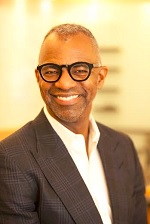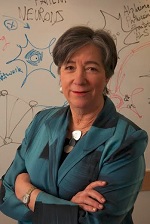 |
| Tony Coles |
A little more than a year ago Tony Coles signed off on a deal to sell Onyx to Amgen ($AMGN) for $10.4 billion, and carved off a $58 million-plus slice of that for himself in the process. But rather than sail off into the sunset with a great reputation and a pile of money, he's headed back to work. This morning Coles pulled back the covers on the new biotech he's building, and once again, he's thinking big as he takes the helm.
 |
| Susan Lindquist |
But this time, it's not about cancer, where Onyx scored an approval for Kyprolis. Instead, Coles has partnered with a scientific co-founder--Whitehead researcher Susan Lindquist, an award-winning expert on protein folding--and is taking a shot at developing new meds for CNS conditions, trading one of the hottest scientific fields in drug development for one of the coldest. The two founded Yumanity Therapeutics in Cambridge, MA, where Coles first got started in the business.
The fledgling biotech has set a wide range of tough targets for itself, from Alzheimer's disease to amyotrophic lateral sclerosis (ALS), with a lead target picked out for Parkinson's.
Protein misfolding is a trigger for a number of CNS diseases and a focus at a few biopharmas like Forma and Takeda. But Yumanity is betting that it can make its mark in the field with a unique set of discovery platforms. Biogen Idec vet Kenneth Rhodes is joining Yumanity as CSO. And they'll be working with three scientific co-founders: Vikram Khurana, M.D., Ph.D., Chee-yeun Chung, Ph.D. and Daniel Tardiff, Ph.D.
Coles and Lindquist got to know each other through their work at FoldRx, a biotech that was snapped up by Pfizer. The ex-Onyx CEO says Lindquist called him up about 7 or 8 months ago to discuss her ideas. And then a few months ago they took the first few steps, seeding the company--which currently has a staff of 5 with plans to expand to 20-25 in the coming months--and nailing down rights to the technology.
"I like a good challenge and a big problem," Coles tells FierceBiotech.
For Coles, moving back to the Boston area makes sense for a variety of reasons. It was as a student at Harvard when he first began thinking of "big problems and big populations." He was a research fellow at Harvard Medical and later a senior exec at Vertex, where he wound up suing the company and then CEO Josh Boger after he claimed he was demoted in 2005. Since then the biotech hub has flowered into a rich R&D ecosystem, brimming with new ideas and upstarts out to pioneer new drugs. And the fact that the scientific team is in Boston helped make the relocation from the West Coast inevitable.
Coles is less talkative about financing right now. The plan is to get the first round together in the first quarter of next year. After that, he's open to just about everything, including the possibility of partnering early on, considering the number of potential programs that could be put together.
"I think we'll have an embarrassment of riches," says Coles, adding that "deep expertise in development would be interesting."
What really sets the company apart from all the failed efforts of the past, says Lindquist, is the interlocking platforms that will be used to identify new targets and new drugs. "The movement back and forth between these platforms will be powerful," promises the scientist. They are:
- An "ultra high-throughput, phenotypic screening (uHTS) platforms, in which different protein misfolding pathologies are modeled in yeast and compounds to correct these pathologies are discovered;
- A human neuronal platform, in which neurons produced from the stem cells of patients with disease-causing genetic mutations are used to validate the molecules discovered in yeast; and,
- A drug-target identification platform that exploits the power of yeast genetics and protein network analyses to elucidate mechanisms of action for pathology correcting molecules as new chemical entities are discovered."
Coles' decision to re-up for another round of company development provides a fresh example of a generation of experienced biotech leaders who are starting biotechs and heading back to the clinic. Biotech was born decades ago, and now the top players are starting their second or third acts--well connected to investors and scientists and ready to call in a team of veterans to carry out the game plan. Their progress marks a major turning point for the industry as it reinvents itself as a faster, smarter drug developer well aware of the challenges and opportunities ahead.
Or, at least, that's the great expectation of many.
- here's the release